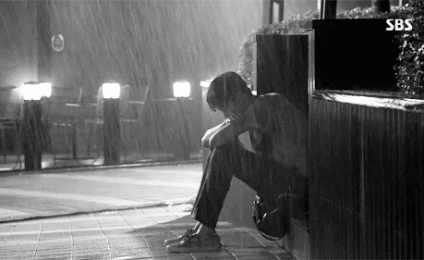What do you think is the most vital factor in a healthy, successful relationship? Is it love? Trust? Shared goals? Physical attraction? Recently, I posed a question to a private community I’m part of—a tight-knit Facebook group called “This Is Your Tribe.” The question was simple but deeply telling:
“If you had to choose just one thing that matters most in a relationship, what would it be?”
I expected the usual suspects to show up. After coaching countless people through relationship struggles and watching their patterns unfold, I assumed the top answers would be things like emotional chemistry, trust, or deep connection. But to my surprise, none of those ranked first.
The answer that came up again and again was: respect.
And honestly, that response hit differently.
Because here’s what I realized: People named respect not because they take it for granted, but precisely because it had been absent from their past experiences. The longing for it, the wounds left by its absence—those spoke louder than anything else.
What stood out even more? Every single person who answered “respect” in the thread was a woman.
That pattern says something. It speaks to a collective experience many women have endured: being in relationships where they felt dismissed, belittled, controlled, or diminished. If you’re reading this and you're a woman, chances are you’ve felt this void too. You’ve been in a relationship where your boundaries were crossed, where your needs weren’t honored, where you had to make yourself smaller just to maintain the peace.
You told yourself you were compromising. But what you were actually doing was forgetting who you are. And the cost of that? It’s never light. When respect goes missing, the relationship starts breaking from the inside. It may not be loud at first—it may even look fine from the outside. But you’ll feel it. Deeply.
Respect Isn’t Extra—It’s the Foundation
Respect isn’t a bonus feature. It’s not the heated leather seats in a luxury car. It’s the engine. Without it, the vehicle doesn’t run—at least not far, and definitely not smoothly.
And yet, too many people ignore the signs of disrespect early on because emotions are powerful. We fall fast. We cling to the good moments. We give the benefit of the doubt again and again. But little by little, that erosion adds up.
If you’re reading this thinking, “Wait—was that me?” then maybe it’s time to stop and reevaluate. Because when you accept love without respect, you’re settling for something far less than what you deserve. And eventually, you become a shell of who you used to be.
When people say relationships are work, they don’t mean the kind of work where you have to constantly fight to be seen, heard, or valued. That’s not work—that’s survival. Real relationship work starts with respect as the baseline.
The Real Sequence: From Respect to Love That Lasts
Let’s break it down:
Respect → Trust → Emotional Safety → Strong, Healthy Love
Notice how love comes last in that sequence—not because it’s less important, but because it can’t thrive without the foundation below it. You can’t build intimacy without trust. You can’t trust someone who disrespects you. It’s that simple—and that hard.
So if you’re wondering why things keep falling apart even though you feel “so in love,” it might be because you skipped the groundwork.
What Does Respect Actually Mean?
Forget the dictionary definitions. Respect isn’t about polite manners or textbook gestures. It’s about how people treat each other on the deepest level.
Here’s what real respect looks like in a relationship:
-
No one holds power or control over the other.
-
You don’t need to agree on everything to support each other fully.
-
Space is allowed for individuality—different beliefs, different rhythms, different needs.
-
There's room to breathe, to grow, to disagree, and still feel safe.
-
You don’t try to “fix” or “change” the other person—you let them be.
-
You manage your own issues rather than projecting them.
-
You hold your life together without needing to dominate theirs.
It means choosing empathy over control. Curiosity over judgment. It means saying, “I see you,” and meaning it, without trying to mold them into someone else.
Take a Moment and Reflect: Is Respect Present in Your Relationship?
Ask yourself honestly. Not just, “Do we love each other?” but:
“Do we respect each other?”
If you’re not in a relationship right now, this is still vital. Let this be your wake-up call. Respect isn’t optional—it’s the standard. If it hasn’t been present in your past relationships, that’s not something to feel shame over. But it is something to learn from.
And maybe now it’s clicking. Maybe you’re realizing that respect wasn’t just missing once—it’s been a recurring theme. A pattern. And if that’s true, then you need to turn the question inward: Why did I let it slide? Why wasn’t it non-negotiable?
When Compromise Becomes Self-Abandonment
Often, the lack of respect doesn’t scream at first. It whispers. It creeps in quietly—missed calls, dismissive tones, controlling comments disguised as concern. And you excuse it. Because you care. Because you want it to work.
Before you know it, you’ve compromised not just on preferences—but on identity.
It usually starts with love. You care so deeply that you try to be accommodating, understanding, flexible. And those are beautiful traits. But if that flexibility bends into silence, if your needs disappear, if you’re constantly rationalizing their behavior, then you're not compromising—you're disappearing.
And once you start shrinking to preserve the relationship, it becomes harder and harder to remember who you were before it.
If Not for You, Then Do It for the Relationship
If you’re not ready to reclaim respect for yourself, then do it for the person you want to share your life with. Because if respect is missing, they lose too. They miss the chance to grow alongside someone who challenges them with kindness, who holds boundaries with grace, who invites honesty by showing how it’s done.
When you hold yourself with dignity, you teach the other person how to rise too.
So make respect your dealbreaker. Your red line. Your foundation.
Work on yourself until the day comes when your standard is so ingrained that walking away from disrespect doesn’t feel like heartbreak—it feels like self-preservation.
And when someone shows up ready to meet you in that space, you’ll know: this time, it’s built on something real.


























